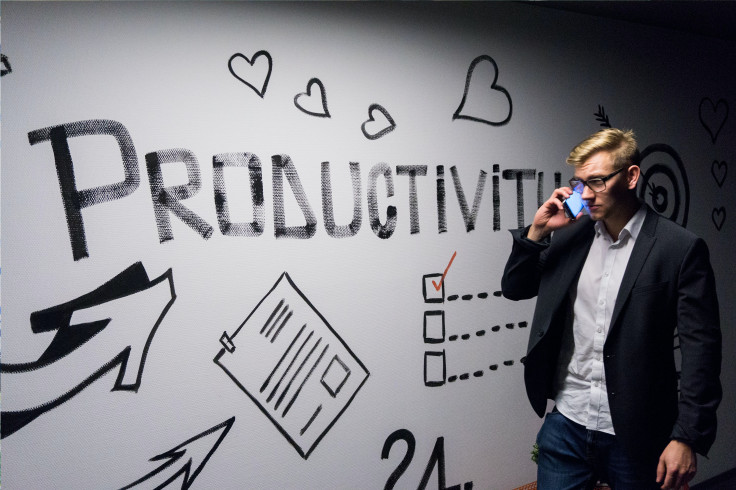Is hypnotherapy a new powerful solution for reducing workforce stress?
Factors such as unclear expectations, inadequate resources or support, and job insecurity can contribute to work-related stress.

A recent survey by Statista revealed that 79 per cent of respondents reported workplace stress. This is a staggering number! While some stress can be beneficial, and can even be a motivating factor, long-term, chronic or excessive stress can adversely affect our well-being and job performance.
Stress can arise from a variety of sources, both in the workplace and outside of work. We may experience stress due to personal relationships, financial pressures, major life events, health concerns, or a lack of work-life balance. In the professional realm, common stressors include high workloads, tight deadlines, interpersonal conflicts, a lack of control or autonomy and a challenging work environment.
Additionally, factors such as unclear expectations, inadequate resources or support and job insecurity can contribute to work-related stress. A survey by the American Psychological Association revealed that adults affected by change at work are more likely to report chronic work stress, less likely to trust their employer and more likely to say they plan to leave the organisation within the next year.
When we are under high levels of stress, we may struggle with concentration, decision-making and problem-solving, which can hinder effectiveness in our roles. Creative thinking is hampered by high stress levels, as the brain is focused on survival.
Furthermore, chronic stress can contribute to a variety of health issues, such as cardiovascular problems, weakened immune systems and mental health disorders like anxiety and depression and burnout. These health concerns not only impact personal lives but also diminish productivity, engagement and overall job satisfaction.
The effects of stress extend beyond the individual to impact on the entire team and organisation. High stress levels can lead to strained relationships, and higher turnover rates, impacting the overall cohesiveness and productivity of the team. The resulting overwhelmed and stressed workforce can experience decreased morale, increased absenteeism, higher turnover rates and decreased organisational performance.
It is clear, then, that managing workforce stress is a top priority. Many companies are exploring effective strategies that can make a difference, and are considering adding hypnotherapy to their toolbox of staff resources, through a platform such as MindMatters which provides instant access to a library of self-hypnosis sessions.
Hypnotherapy is particularly effective in combatting stress, because it works on a number of levels. Listening to a self-hypnosis audio, which incorporates guided imagery, deep breathing exercises and progressive muscle relaxation techniques, induces a feeling of profound relaxation and wellbeing. This complete physical and mental relaxation calms the parasympathetic nervous system, reduces the fight-flight response and promotes healing.
Where hypnotherapy is uniquely effective is the ability to provide positive suggestions directly to the subconscious mind. A skilled and qualified hypnotherapist can deliver empowering suggestions that foster a sense of calm, composure and control during stressful situations. These suggestions help employees reframe negative thought patterns, enhancing their resilience and ability to handle workplace demands with confidence.
Recent research in hypnotherapy has shown promise in mitigating stress-related health problems, such as high blood pressure. Reduced blood pressure levels not only enhance our physical health but also positively impact our mental clarity, focus and productivity.
The effectiveness of hypnotherapy in stress reduction is supported by scientific research. For example, a study conducted by Silvia Fisch et al. demonstrated significant reductions in perceived stress levels among participants who received hypnosis intervention. These findings highlight the potential of hypnotherapy as a powerful tool for reducing workforce stress.
Hypnotherapy can positively impact your workforce by promoting relaxation, improving physical and emotional health and instilling a sense of control and an ability to cope. By incorporating hypnotherapy into your wellbeing strategy, you can provide your employees with a holistic approach to stress management, equip them with practical techniques and enable them to navigate workplace challenges more effectively.

Nicole Valens is a mental health professional and a fully qualified hypnotherapist and psychotherapeutic counsellor with over 15 years experience of providing 1:1 therapy. Nicole is passionate about the positive changes hypnotherapy can make to people's lives, and helping people get the best out of life by empowering them to gain control of their thoughts and emotions. She founded MindMatters to support companies and organisations to meet the health and welfare needs of their employees.
She has created a library of self-hypnosis audio sessions, aimed at treating the main issues which affect people, such as stress, depression, anxiety, sleep disorders and lacking confidence; as well as enabling people to care for themselves holistically through pain management, healthy eating and smoking cessation. Because the therapy is self-directed, the sessions can be listened to in complete confidence and at a time that fits in with busy lifestyles. Through hypnotherpay, your worforce can be stress-free, confident and creative!
© Copyright IBTimes 2025. All rights reserved.





















